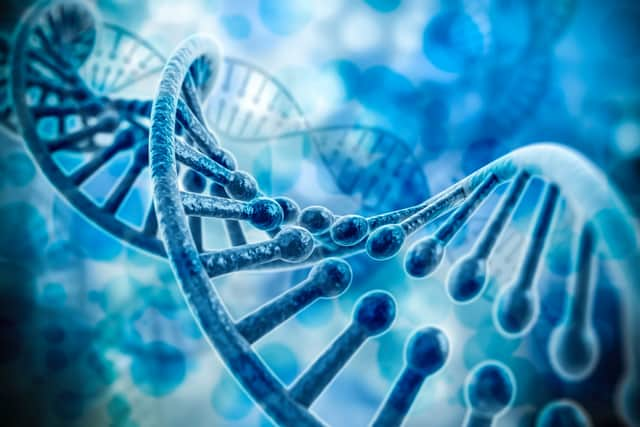Cancer causes: breakthrough DNA study finds clues to causes of cancer and potential for personalised treatment
and live on Freeview channel 276
Analysis of thousands of tumours from NHS patients has identified a ‘treasure trove’ of clues about the causes of cancer.
Researchers say it is possible to detect patterns - called mutational signatures - in the DNA of cancers for the first time, marking a significant step towards the personalisation of treatment.


What did researchers find?
Advertisement
Hide AdAdvertisement
Hide AdIn the biggest study of its kind, researchers at Cambridge University Hospitals analysed the genomes of more than 12,000 NHS cancer patients.
They spotted 58 new mutational signatures, suggesting that there are additional causes of cancer that are not yet fully understood.
Principal author Serena Nik-Zainal, professor of genomic medicine and bioinformatics at the University of Cambridge, said: “The reason it is important to identify mutational signatures is because they are like fingerprints at a crime scene – they help to pinpoint cancer culprits.
“Some mutational signatures have clinical or treatment implications – they can highlight abnormalities that may be targeted with specific drugs or may indicate a potential ‘Achilles heel’ in individual cancers.”
Advertisement
Hide AdAdvertisement
Hide AdScientists were aware of just 51 mutational signatures before the new find, including whether a patient has had past exposure to environmental causes of cancer, such as smoking, UV light exposure, diet, or an inherited genetic trait.
Identifying these signatures allows doctors to look at each patient’s tumour and match it to specific treatments and medications.
However, these patterns can only be detected through the analysis of the vast amounts of data unearthed by whole genome sequencing – identifying the genetic make-up of a cell.


Professor Nik-Zainal added: “It’s like looking at a very busy beach with thousands of footprints in the sand.
Advertisement
Hide AdAdvertisement
Hide Ad“To the untrained eye, the footprints appear to be random and meaningless. But if you are able to study them closely, you can learn a lot about what’s been going on, distinguish between animal and human prints, whether it’s an adult or child, what direction they’re travelling in, etc.
“It’s the same thing with the mutational signatures. The use of whole genome sequencing can identify which ‘footprints’ are relevant/important and reveal what’s happened through the development of the cancer.”
Findings could inform personalised cancer treatment
The findings from the study are now being incorporated into the NHS as researchers and clinicians now have the use of a digital tool called Signature Fit Multi-Step (FitMS) that will help them identify the mutational signature and potentially inform cancer management more effectively.
Only patients who have had their cancers whole genome sequenced will be able to benefit from this tool, but the team believes it can be rolled out to them ‘very quickly’.
Advertisement
Hide AdAdvertisement
Hide AdCurrently, only cancers in children, specific leukaemias and sarcomas (rare cancers affecting the body’s tissues) are sequenced through the NHS, but experts expect this list to be widened in the coming years.
Dr Andrea Degasperi, research associate at the University of Cambridge and first author, said: “Whole genome sequencing gives us a total picture of all the mutations that have contributed to each person’s cancer.
“With thousands of mutations per cancer, we have unprecedented power to look for commonalities and differences across NHS patients, and in doing so we uncovered 58 new mutational signatures and broadened our knowledge of cancer.”
The research was supported by Cancer Research UK and published in the journal Science.
Advertisement
Hide AdAdvertisement
Hide AdThe genomic data was provided by the 100,000 Genomes Project, an England-wide clinical research programme to sequence 100,000 whole genomes from around 85,000 patients affected by rare disease or cancer.
Michelle Mitchell, chief executive of Cancer Research UK, added: “This study shows how powerful whole genome sequencing tests can be in giving clues into how the cancer may have developed, how it will behave and what treatment options would work best.”
Comment Guidelines
National World encourages reader discussion on our stories. User feedback, insights and back-and-forth exchanges add a rich layer of context to reporting. Please review our Community Guidelines before commenting.
